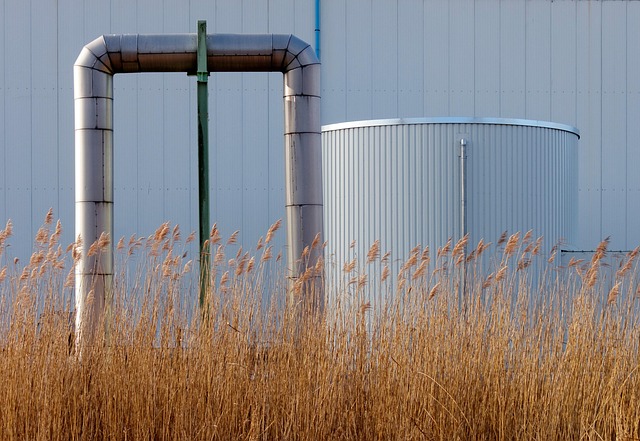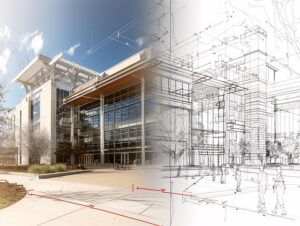Commercial electric boilers are efficient, sustainable heating solutions for institutional and industrial uses, offering clean energy alternatives with zero on-site emissions. Their high capacity, modular design, and superior heat transfer technology cater to diverse HVAC needs while significantly reducing energy consumption and carbon footprints. These advanced systems, ideal for urban environments, provide reliable performance with minimal maintenance, making them cost-effective and environmentally friendly choices for institutions and businesses seeking to adopt clean-burning technologies.
Clean-burning commercial electric boilers are transforming the heating industry, offering a sustainable solution with zero on-site emissions. This technology promises significant environmental benefits while enhancing operational efficiency for businesses.
This article explores the emerging role of commercial electric boilers, delving into their operation, advantages, and the clean-burning technology revolutionizing the market. We also examine implementation strategies and future prospects, highlighting a promising shift towards sustainable heating practices.
- Understanding Commercial Electric Boilers: Their Role and Benefits
- The Environment-Friendly Alternative: Clean-Burning Technology
- Key Features and Advantages of Zero-Emission Boilers
- Implementation and Future Prospects: A Shift Towards Sustainable Heating
Understanding Commercial Electric Boilers: Their Role and Benefits

Commercial electric boilers are specialized heating systems designed to provide efficient and clean energy for institutional and industrial applications. These advanced electric heating systems offer a compelling alternative to traditional fossil fuel-powered boilers, particularly in urban areas where reducing on-site emissions is a priority. By harnessing electricity, commercial electric boilers produce hot water or steam without emitting harmful pollutants, making them an environmentally friendly option.
They play a crucial role in the transition towards sustainable energy practices, especially as businesses and institutions seek to lower their carbon footprints. High-capacity electric boilers are capable of meeting the demands of large facilities, while modular boiler systems provide flexibility and scalability. Moreover, electric steam boilers and electric hot water boilers offer energy-efficient solutions for various processes, contributing to overall operational cost savings. Incorporating commercial electric boiler technology into HVAC (commercial HVAC systems) can lead to significant reductions in both energy consumption and on-site emissions.
The Environment-Friendly Alternative: Clean-Burning Technology

Clean-burning commercial electric boilers represent a significant leap forward in sustainable energy solutions for industrial and institutional settings. Unlike their fossil fuel counterparts, these advanced systems produce zero on-site emissions, marking a dramatic reduction in environmental impact. By harnessing electric heating systems, commercial boiler technology reaches new heights of efficiency, offering high capacity electric boilers that cater to demanding applications.
This eco-friendly approach not only minimizes air pollution but also contributes to a greener future. Energy-efficient boilers, such as electric steam boilers and hot water varieties, are designed for optimal performance in various contexts, including commercial HVAC systems. Their modular construction allows for flexible deployment, making them suitable for institutional heating requirements across diverse facilities.
Key Features and Advantages of Zero-Emission Boilers

Commercial electric boilers are revolutionizing the way we think about heating and hot water in institutions and industrial settings. These cutting-edge devices offer a myriad of advantages, especially their ability to produce zero on-site emissions. This is a significant shift from traditional boiler systems that rely on fossil fuels, contributing to air pollution and greenhouse gas emissions.
Key features include high energy efficiency, thanks to advanced electric heating systems that maximize heat transfer. They are also modular in design, allowing for easy installation and scalability to meet the specific needs of various commercial HVAC systems. With a focus on sustainability, these boilers provide an environmentally friendly alternative, reducing carbon footprints and contributing to a greener future. Additionally, electric hot water boilers and steam generators offer reliable performance with minimal maintenance requirements, making them a cost-effective and efficient solution for institutional heating and industrial processes.
Implementation and Future Prospects: A Shift Towards Sustainable Heating

The implementation of clean-burning commercial electric boilers represents a significant shift towards sustainable heating practices. As institutions and businesses seek to reduce their environmental footprint, these advanced technologies offer an attractive solution. Electric heating systems, particularly high capacity electric boilers and modular boiler systems, are gaining traction due to their energy efficiency and zero on-site emissions. They are ideal for institutional heating, commercial HVAC systems, and industrial applications that demand both reliability and sustainability.
Looking ahead, the future of commercial boiler technology seems poised for continued innovation. The integration of smart controls and digital monitoring enhances operational efficiency while reducing energy consumption further. With advancements in electric steam boilers and electric hot water boilers, the range of applications for these green heating solutions expands. This transition not only benefits the environment but also offers long-term cost savings, making it a win-win for businesses and the planet.
Commercial electric boilers, with their clean-burning technology, represent a significant step towards sustainable heating solutions. By eliminating on-site emissions, these zero-emission boilers not only contribute to improved air quality but also offer cost-effective and efficient operations. As the world shifts towards greener energy sources, the adoption of these advanced systems will be pivotal in reducing environmental impact while providing reliable heating for various applications. This shift marks a promising future for both commercial spaces and the planet.






